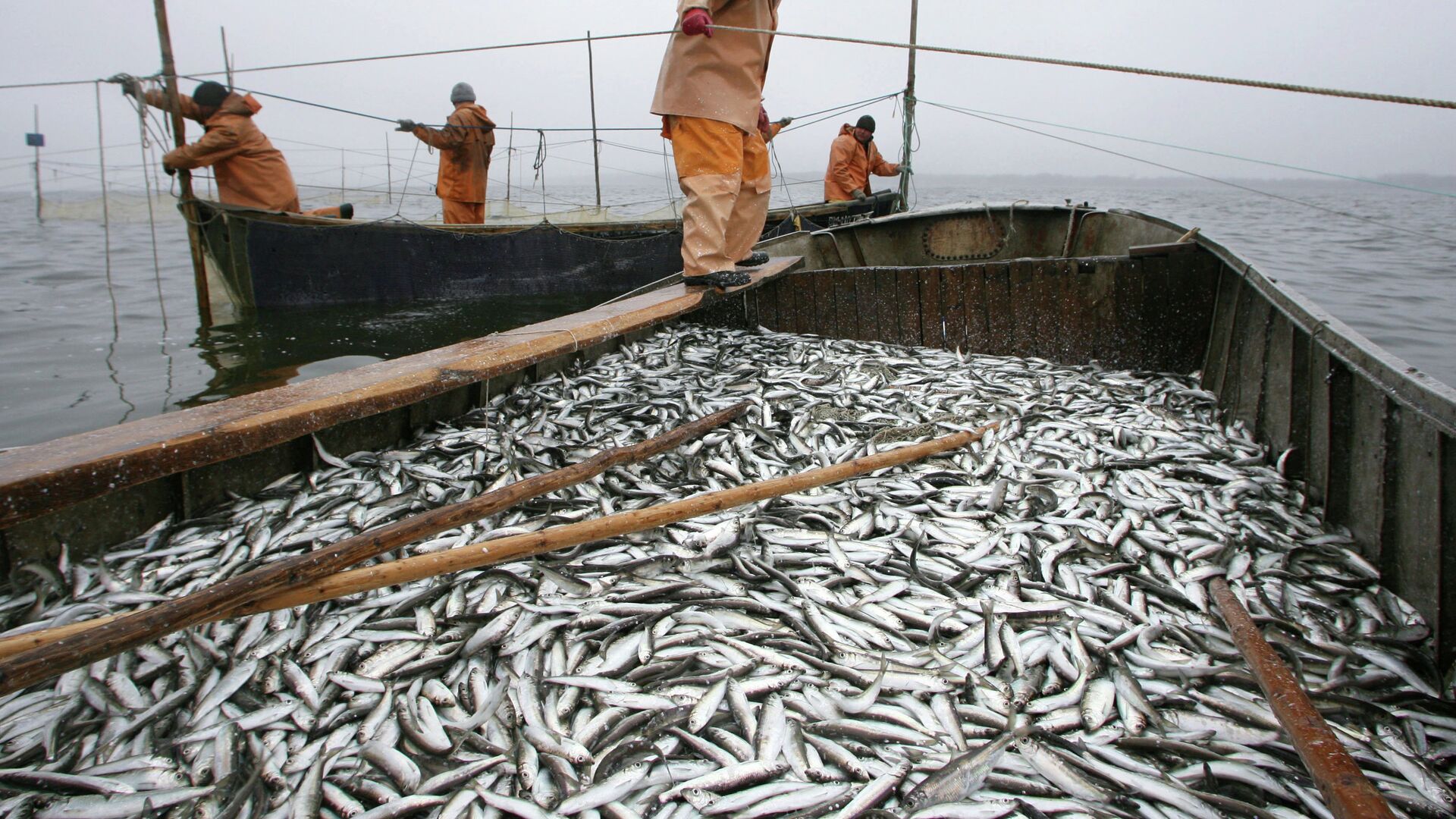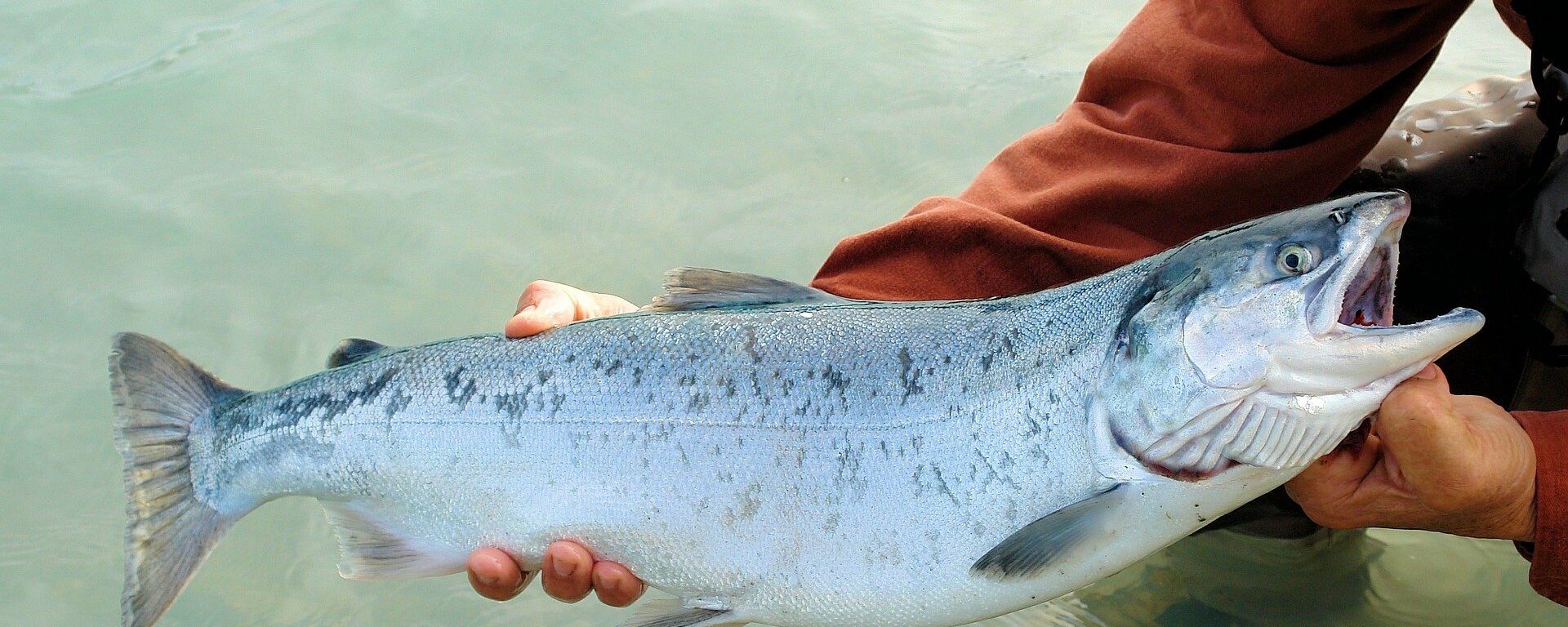https://sputnikglobe.com/20221017/starving-seals-indicate-swedish-overfishing-fuel-fears-of-ecosystem-collapse-1101911485.html
Starving Seals Indicate Swedish Overfishing, Fuel Fears of Ecosystem 'Collapse'
Starving Seals Indicate Swedish Overfishing, Fuel Fears of Ecosystem 'Collapse'
Sputnik International
Years of overfishing, and destructive practices by fisheries have put Baltic Sea staples such as cod and herring at risk of extinction, endangering the future... 17.10.2022, Sputnik International
2022-10-17T08:16+0000
2022-10-17T08:16+0000
2022-10-17T08:16+0000
world
environment
newsfeed
scandinavia
sweden
fish
fisheries
https://cdn1.img.sputnikglobe.com/img/102642/10/1026421090_0:262:3175:2048_1920x0_80_0_0_6ccb589e8ce19ce22c1601958c8499d5.jpg
Researchers in Sweden are ringing alarm bells about the threats overfishing pose to both humans and other species.The herring shortage in the Bothnian Sea (which forms the northern part of the Baltic Sea) has driven seals to the point of starvation.According to recent observations, the blubber layer in local seals is only a centimeter - and sometimes even less - rather than the five centimeters to be found in a healthy animal.Lena Bergström, a professor of the University of Agriculture (SLU) confirmed that seals are suffering from a lack of food.Seals are usually considered a major problem for commercial fishing as they feast on catches and destroy gear. Now the tables have turned and they are the ones suffering at the hand of humans. At the same time, the starvation of a top predator in the food chain indicates that the entire ecosystem has been disrupted and is at risk of falling apart. This dismal view has been analyzed by the Gävleborg County administrative board, which warned of the possibility of “collapse”.“This is a big blow to other fish species as well,” Gullberg told SVT.This week on Monday and Tuesday, the EU will decide on new fishing quotas for the Baltic Sea. Although a certain reduction in the Bothnian Sea area has been forecast with the result of higher fishing quotas in the central Baltic Sea, local authorities warned that these measures are insufficient. Instead, Gävleborg County's administrative board is demanding that the fishing quota in an area of the Bothnian Sea be halved, with several zones declared completely fishing-free. Bergström also warned that the present arrangement is bound to continue unless fishing is restricted more drastically.Many years of overfishing and poor management, including illegal discarding and other destructive practices, have put iconic Baltic Sea species such as cod and herring in perilously bad shape, with researchers warning of stocks dropping to critical levels for conservation. Meanwhile, stocks are crucial for populations of sea birds, marine mammals and other fish.
https://sputnikglobe.com/20220725/norway-doubles-import-of-russian-fish-feed-as-govt-prioritizes-national-economic-interests-1097758689.html
scandinavia
sweden
Sputnik International
feedback@sputniknews.com
+74956456601
MIA „Rossiya Segodnya“
2022
News
en_EN
Sputnik International
feedback@sputniknews.com
+74956456601
MIA „Rossiya Segodnya“
Sputnik International
feedback@sputniknews.com
+74956456601
MIA „Rossiya Segodnya“
environment, newsfeed, scandinavia, sweden, fish, fisheries
environment, newsfeed, scandinavia, sweden, fish, fisheries
Starving Seals Indicate Swedish Overfishing, Fuel Fears of Ecosystem 'Collapse'
Years of overfishing, and destructive practices by fisheries have put Baltic Sea staples such as cod and herring at risk of extinction, endangering the future and conservation of all sorts of other marine species.
Researchers in Sweden are ringing alarm bells about the threats overfishing pose to both humans and other species.
The herring shortage in the Bothnian Sea (which forms the northern part of the Baltic Sea) has driven seals to the point of starvation.
“They only have a thin blubber layer and risk dying - freezing to death,” fisheries consultant Kalle Gullberg of the Gävleborg County administrative board told national broadcaster SVT.
According to recent observations, the blubber layer in local seals is only a centimeter - and sometimes even less - rather than the five centimeters to be found in a healthy animal.
Lena Bergström, a professor of the University of Agriculture (SLU) confirmed that seals are suffering from a lack of food.
Seals are usually considered a major problem for commercial fishing as they feast on catches and destroy gear. Now the tables have turned and they are the ones suffering at the hand of humans. At the same time, the starvation of a top predator in the food chain indicates that the entire ecosystem has been disrupted and is at risk of falling apart. This dismal view has been analyzed by the Gävleborg County administrative board, which warned of the possibility of “collapse”.
“This is a big blow to other fish species as well,” Gullberg told SVT.
This week on Monday and Tuesday, the EU will decide on new fishing quotas for the Baltic Sea. Although a certain reduction in the Bothnian Sea area has been forecast with the result of higher fishing quotas in the central Baltic Sea, local authorities warned that these measures are insufficient. Instead, Gävleborg County's administrative board is demanding that the fishing quota in an area of the Bothnian Sea be halved, with several zones declared completely fishing-free. Bergström also warned that the present arrangement is bound to continue unless fishing is restricted more drastically.
Many years of overfishing and poor management, including illegal discarding and other destructive practices, have put iconic Baltic Sea species such as cod and herring in perilously bad shape, with researchers warning of stocks dropping to critical levels for conservation. Meanwhile, stocks are crucial for populations of sea birds, marine mammals and other fish.



